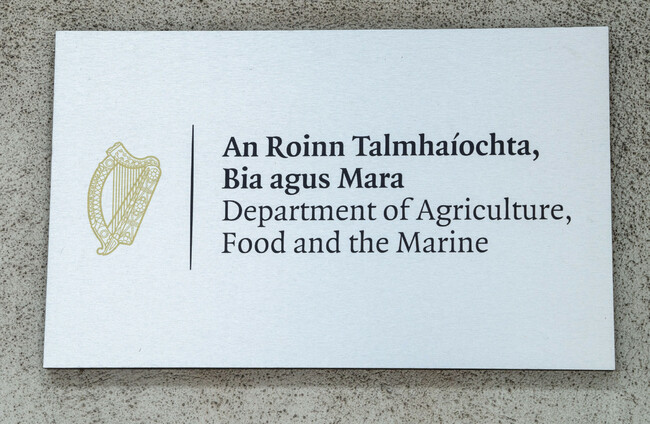
Ireland backed keeping glyphosate on the market Alamy Stock Photo
THE MORNING LEAD
The Department of Agriculture said its decision was based on scientific advice.
12.06am, 17 Nov 2023
IRELAND VOTED IN favour of a 10-year renewal of the EU licence for glyphosate, one of the world’s most widely used herbicides.
The Department of Agriculture toldThe Journalit supported the renewal based on “exceptionally detailed scientific assessments” by two EU scientific agencies “which did not identify any critical areas of concern”.
Glyphosate, better known by the brand Roundup, has been associated with adverse impacts on the environment and on human health. Manufacturer Bayer – which bought the chemical’s developer, Monsanto, in 2018 – has faced legal actionsclaiming glyphosate exposure caused cancer, a claim it denies. A class action is now underway in Australia.
A recent assessment of the evidence on glyphosate by the European Food Safety Authority (Efsa), one of the EU’s scientific agencies, did not identify concerns that would prevent reauthorisation – advice which was criticised by environmental groups, which noted gaps in the data.
The department represented Ireland at an appeals committee vote in Brussels on Thursday at which a qualified majority was not reached, with three votes against renewal and seven abstentions.
The abstentions are understood to have included the EU’s three largest member states – Germany, France and Italy – while the countries voting against were Luxemburg, Austria and Croatia.
In the absence of a qualified majority in favour of or against renewal, the European Commission was left to make the final decision. It will renew the licence, which was due to expire next month.
The Commission said it would impose new conditions as part of the renewed licence, including maximum application rates and a requirement for member states to “set risk mitigation measuresto ensure that non-target organisms and the environment are protected”.
The Department of Agriculture said the assessments of glyphosate by the EU’s scientific agencies were “comprehensive and included all relevant scientific information from a wide range of sources, including numerous studies published in the scientific literature and extensive public consultation input”.
“Glyphosate has been reviewed in depth at EU level twice within recent years, with no critical concerns being identified on either occasion. The current assessment is the most detailed review ever performed for a pesticide in the EU,” the department said.
The Irish Farmers’ Association (IFA) has advocated for the licence to be renewed, arguing that glyphosate is “critical” for Irish farming.
Kieran McEvoy, chair of the IFA’s grain committee, explained that glyphosate is widely used in Irish tillage to remove weeds, self-sown seeds and catch crops after harvest and before sowing a new crop.
McEvoy said farmers have lost several chemicals in recent years as a result of regulation. He said he trusts the scientific advice that glyphosate is safe for use and is not personally worried about using it, as he wears personal protection equipment as advised.
The IFA has also argued that glyphosate facilitates the use of multi-species swards in grassland, which helps to reduce greenhouse gas emissions from agriculture.
The EU’s decision was welcomed by the Glyphosate Renewal Group, a coalition of companies including Bayer, which said equipping farmers with “effective and safe tools to control weeds” would “contribute to a more secure European food supply”.
A filing on the EU Transparency Register shows that Irish public relations firm Hume Brophy spent between €300,000 and €400,000 in 2022 on activities in Brussels on behalf of the Glyphosate Renewal Group.
A number of Irish city and county councils have implemented bans or restrictions on the use of glyphosate in their areas but many were still using glyphosate last year, as reported byThe Journal‘s investigative platform Noteworthy.
The World Health Organization deemed glyphosate a “probable” carcinogen in 2015, leading to widespread concern globally at its use. Environmentalists have also noted evidence of negative impacts on aquatic life and on pollinators. Ahead of this week’s vote, Greenpeace argued that alternatives exist.
Pesticide Action Network Europe said approving glyphosate for continued use was not in line with the precautionary principle, wherebypreventative decision-making should take place when there are risks to health or the environment.
Green MEPs, including Ireland’s Grace O’Sullivan, have called on the European Commission president to intervene to prevent the licence renewal.
Readers like you are keeping these stories free for everyone... A mix of advertising and supporting contributions helps keep paywalls away from valuable information like this article. Over 5,000 readers like you have already stepped up and support us with a monthly payment or a once-off donation. Learn More Support The Journal